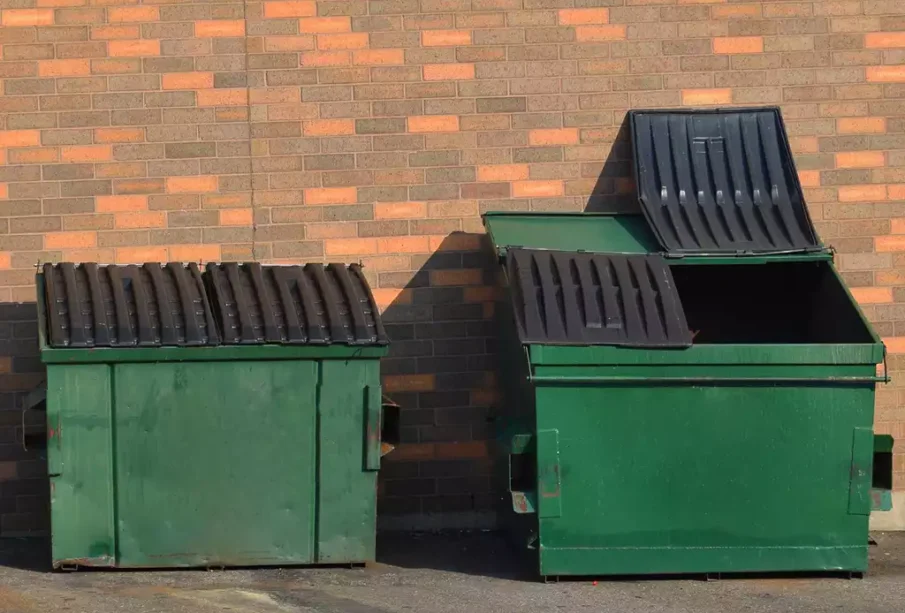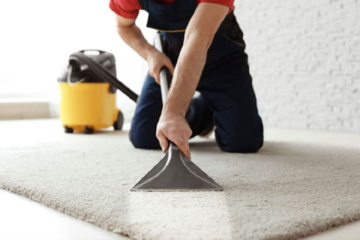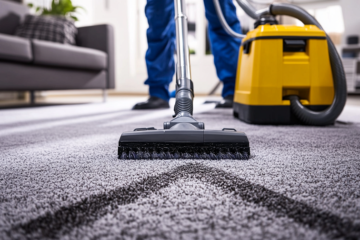What Can I Put in a Dumpster?

Renting a dumpster is an excellent way to manage waste during home renovations, construction projects, or major cleanouts. However, not all waste is created equal, and it’s essential to know what can and cannot go into a dumpster. Misplacing prohibited items in your dumpster can result in additional fees, legal issues, or environmental harm.
If you’re working with roll-off dumpster rental services, understanding the rules for proper disposal is the first step toward an efficient and hassle-free cleanup. Let’s explore the types of items you can typically dispose of, those you can’t, and some tips to make the most of your dumpster rental.
What Can I Put in a Dumpster?
Dumpsters can handle a wide variety of waste materials, including household items, construction debris, yard waste, and more. Here’s a detailed breakdown of what’s typically accepted:
Household Waste
Dumpsters are a convenient solution for getting rid of general household waste, especially during large-scale decluttering projects or moves. Common household items you can dispose of include:
- Furniture: Items such as chairs, tables, sofas, mattresses, and box springs are usually allowed. Some localities may require mattresses to be wrapped in plastic or processed separately.
- Appliances: Small appliances like microwaves, toasters, and blenders can usually go in the dumpster. However, large appliances like refrigerators or air conditioners may require special handling to remove refrigerants before disposal.
- General Trash: Non-hazardous materials such as food packaging, cleaning supplies, and everyday trash are acceptable.
Yard Waste
Yard cleanups often generate significant amounts of waste, and a dumpster is an ideal way to manage it. You can typically include:
- Tree Limbs and Branches: These should be cut into manageable pieces to fit into the dumpster.
- Grass Clippings and Leaves: Organic debris such as grass and leaves are commonly accepted.
- Garden Waste: Plants, weeds, and soil in small quantities can usually be disposed of.
Some areas restrict the disposal of large amounts of soil or untreated wood, so check with your rental provider beforehand.
Construction Debris
Roll-off dumpsters are essential for managing construction and renovation waste. Common materials that are accepted include:
- Wood and Lumber: Pieces of wood from framing, decking, or old furniture.
- Drywall: Broken drywall sheets or scraps from remodeling projects.
- Roofing Materials: Shingles, tiles, and other roofing debris.
- Concrete, Bricks, and Asphalt: While these materials are accepted, they may require a specific dumpster type due to their weight. Overloading a dumpster with heavy debris can result in additional fees.
Household Fixtures
If you’re remodeling your home, many fixtures can be discarded in a dumpster. These include:
- Cabinets and Countertops: Old kitchen or bathroom cabinets and countertops made of laminate, wood, or granite.
- Plumbing Fixtures: Sinks, bathtubs, and toilets are typically allowed as long as they are free of hazardous materials.
Small Items and Miscellaneous Junk
Smaller items can easily be added to a dumpster during cleanout projects. These include:
- Clothing and Textiles: Old clothes, linens, and shoes.
- Books and Paper: Outdated magazines, newspapers, and books can go in the dumpster unless they need to be recycled separately.
- Toys and Hobby Items: Old toys, sporting equipment, and other miscellaneous items are usually accepted.
What Cannot Be Put in a Dumpster?
While dumpsters accommodate a wide range of materials, certain items are restricted due to safety, environmental, or legal reasons. Here’s what you should avoid:
Hazardous Waste
Hazardous materials require special disposal methods and cannot be placed in dumpsters. These include:
- Chemicals: Paint, solvents, cleaning agents, and pesticides.
- Batteries: Car batteries, lithium-ion batteries, and other electronic batteries.
- Flammable Items: Gasoline, propane tanks, and other highly flammable materials.
- Medical Waste: Biohazards such as syringes, medication, or medical supplies.
Electronics
Large electronics like TVs, computers, and monitors often contain toxic components such as lead or mercury. These items should be taken to designated e-waste recycling facilities.
Tires and Automotive Parts
Most landfills restrict tires due to the space they occupy and their potential for environmental harm. Similarly, vehicle parts, oils, or fluids require specialized disposal.
Appliances with Refrigerants
Refrigerators, air conditioners, and freezers often require the removal of refrigerants before disposal. Many areas have strict guidelines for recycling these appliances.
Oversized or Heavy Debris
Dumpsters have weight limits, especially for heavy materials like concrete or bricks. Exceeding these limits may result in additional charges or require a specialty dumpster for heavy debris.
Tips for Maximizing Your Dumpster Rental
To make the most of your dumpster rental, follow these practical tips:
Sort Your Waste
Separate hazardous materials, recyclables, and general waste before loading the dumpster. This prevents contamination and ensures compliance with local regulations.
Load Strategically
Place heavier items at the bottom of the dumpster and lighter materials on top. This not only maximizes space but also keeps the load stable for transport.
Stay Within Weight Limits
Overloading a dumpster can lead to additional fees. Check with your roll-off dumpster rental services provider about weight restrictions, especially for heavy debris like concrete or soil.
Plan Ahead
Estimate the size of the dumpster you’ll need based on your project’s scope. Ordering a dumpster that’s too small may result in multiple rentals, increasing costs.
Recycle When Possible
Many materials, such as metals, electronics, and plastics, can be recycled. Sorting these items and taking them to a recycling center can help reduce waste.
Why Choose Professional Roll-Off Dumpster Rental Services?
Working with roll-off dumpster rental services simplifies waste disposal and ensures compliance with local regulations. Here’s why partnering with professionals is a smart choice:
Expertise
Local providers understand waste disposal rules and can guide you on what can and cannot be placed in a dumpster.
Convenience
Professional services deliver and pick up dumpsters at your location, saving you time and effort compared to multiple trips to a landfill.
Environmental Responsibility
Reputable services work with recycling centers and ensure waste is disposed of in an environmentally friendly manner.
Final Thoughts
Knowing what you can and cannot put in a dumpster is essential for a smooth and efficient cleanup process. While household items, yard debris, and construction materials are typically accepted, hazardous waste, electronics, and certain appliances should be handled separately.
By working with roll-off dumpster rental services, you can enjoy the convenience of professional waste management while staying compliant with disposal regulations. Whether you’re clearing out your home, managing a renovation, or tackling a major construction project, understanding these guidelines will help you make the most of your dumpster rental.




